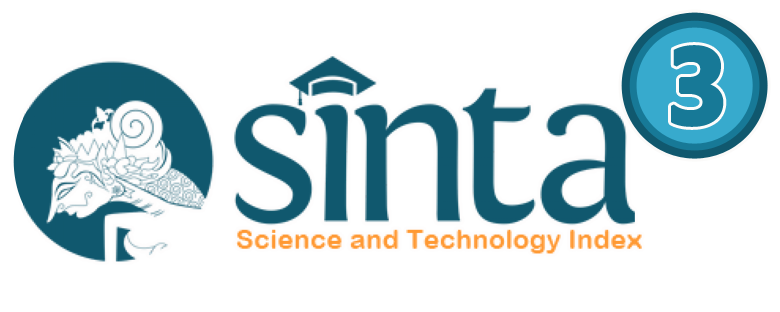Humanistic And Sophistic Psychology Coherence In Improving Emotional Well-Beeing In Modern Era
DOI:
https://doi.org/10.18326/ijip.v5i1.54Keywords:
teori humanistik, teori sufistik, gangguan kejiwaanAbstract
The coherence of and humanistic psychology and Sufistic psychology in their implementation improves psychology in the modern era which is very influential and dominates. In the era of modernization, it has positive and negative influences on human life. On the one hand, the development of the times provides benefits in assisting human activities in all dimensions of life, but on the other hand, it can create new problems that cause damage and decrease in human psyche. This research uses information retrieval techniques from phenomenological studies that exist in the community, with the type of qualitative research using descriptive methods. Collecting data using interview methods, and observation. While data reduction is used as data analysis. This research aims to describe or explain systematically and clearly about the relationship between psychological theory and events that occur in society in an effort to improve psychology in modern times. The results of this research found that there is coherence and connection between and humanistic psychology and Sufistic psychology in their efforts to improve and improve psychology in today's modern era.
References
R. Setiawati, “Kesehatan Mental Perspektif M. Bahri Ghazali,” 2020.
Jalaluddin, Psikologi Agama, Revisi. Jakarta: Rajawali Grafindo Persada, 2004.
E. Nurhayati, Bimbingan Konseling & Psikoterapi Inovativ. Yogyakarta: Pustaka Pelajar, 2011.
S. Mashuri, “Faktor-faktor Kesehatan Mental Jamaah Majlis Tauhid di Desa Njajar Dalam Bimbingan Penyuluhan Islam.,” Skripsi, IAIN Ponorogo, Ponorogo, 2021.
Sumardjito, “Permasalahan Perkotaan Dan Kecenderungan Perilaku Individualis Penduduknya,” Cakrawala Pendidikan, vol. 2, hlm. 131–135, 1999, doi: 10.21831/cp.v2i2.9013.
F. G. Goble, Mazhab ketiga: psikologi humanistik Abraham Maslow/penerjemah; A. Supratiknya. Yogyakarta: Kanisius, 1994.
N. Majid, Ed., Manusia modern mendamba Allah: renungan tasawuf positif, Cet. 1. Jakarta: Diterbitkan atas kerjasama Penerbit IIMaN dengan Penerbit Hikmah, 2002.
J. Rakhmat, Psikologi komunikasie, Cetakan keduapuluhsembilan, November 2013. Bandung: Penerbit PT Remaja Rosdakarya, 2013.
M. Sholihin dan M. Abdul, Terapi Sufistik : Penyembuhan penyakit kejiwaan perspektif tasawuf, Revisi. Bandung: Pustaka Setia, 2004.
P. PRAYADI, M. Ruslan, dan J. Jamilah, “EKSISTENSI DAKWAH MAJELIS TAK’LIM PADA MASYARAKAT DIDESA RANTAU PANJANG SIAU KABUPATEN MERANGIN,” 2021.
D. Ancok dan F. N. Suroso, Psikologi islam: solusi Islam atas problem-problem psikologi, Cet ke-3. Yogyakarta: Pustaka Pelajar, 2000.
Z. Daradjat, Peranan Agama dalam Kesehatan. Jakarta: Gunung Agung, 1982.
Y. Pujiati, “FUNGSI AGAMA TERHADAP KESEHATAN MENTAL MENURUT ZAKIAH DARADJAT,” UNIVERSITAS ISLAM NEGERI RADEN INTAN LAMPUNG, Lampung, 2018.
A. A. Rahman, Sejarah Psikologi : Dari Klasik Hingga Modern. Depok: Rajawali Pers, 2018.
A. Qodir, “Teori Belajar Humanistik Dalam Meningkatkan Prestasi Belajar Siswa,” Pedagogik: Jurnal Pendidikan, vol. 4, no. 2, 2017.
K. Mualim, “Gagasan Pemikiran Humanistik dalam Pendidikan,” Jurnal Al-Asasiyya, vol. 2, no. 1, hlm. 6, 2017.
W. O. Hasanah dan F. T. Haziz, “Implementasi Teori Humanistik Dalam Meningkatkan Kesehatan Mental,” Nosipakabelo: Jurnal Bimbingan Dan Konseling Islam, vol. 2, no. 02, hlm. 79–87, 2021.
W. O. Hasanah dan F. T. Haziz, “Implementasi Teori Humanistik Dalam Meningkatkan Kesehatan Mental,” Nosipakabelo: Jurnal Bimbingan Dan Konseling Islam, vol. 2, no. 02, hlm. 79–87, 2021.
A. N. A. Ansori, “Orang yang Bisa Beri Rasa Aman Dapat Kurangi Masalah Kesehatan Mental,” Liputan 6, 2020. https://www.liputan6.com/health/read/4425328/orang-yang-bisa-beri-rasa-aman-dapat-kurangi-masalah-kesehatan-mental
I. Barina, “Jangan Remehkan Terima Kasih, Bermanfaat bagi Kesehatan Mental!,” Suara.com, 2021. https://yoursay.suara.com/lifestyle/2021/09/23/065844/jangan-remehkan-terima-kasih-bermanfaat-bagi-kesehatan-mental
A. PRATIWI, “Proses Aktualisasi Diri Tokoh Made Dalam Novel Putih Biru Karya Arya Lawa Manuaba: Kajian Psikologi Abraham Maslow,” 2020.
L. A. King, The science of Psychology: an appreciative view. Boston: McGraw-Hill, 2008.
A. Arbayah, “Model Pembelajaran Humanistik,” Dinamika Ilmu, 2013.
R. Frager, Hati, diri, jiwa, psikologi sufi untuk transformasi, Cet. 3. Jakarta: Serambi Ilmu Semesta, 2005.
G. A. Rahman, Terapi sufistik untuk penyembuhan gangguan kejiwaan, Cet. 2. Yogyakarta: Aswaja Pressindo, 2012.
A. Hamid, Doa & dzikir khusus terapi masalah - masalah hati, Cet. 1. Jakarta: Sabil, 2011.
Y. Hidayat, Kajian Psikologi Sastra dalam Novel Negeri 5 Menara Karya Ahmad Fuadi. Penerbit YLGI, 2021.
W. O. Hasanah dan F. T. Haziz, “Implementasi Teori Humanistik Dalam Meningkatkan Kesehatan Mental,” Nosipakabelo: Jurnal Bimbingan Dan Konseling Islam, vol. 2, no. 02, hlm. 79–87, 2021.
A. al-Najjar dan I. Suntana, Psikoterapi sufistik dalam kehidupan modern. Jakarta: Hikmah, 2004.
S. Rahmatiah, “Metode Terapi Sufistik Dalam Mengatasi Gangguan Kejiwaan,” Jurnal Dakwah Tabligh, vol. 18, no. 2, hlm. 287–309, 2017.
Downloads
Published
Issue
Section
License
Copyright (c) 2023 IJIP : Indonesian Journal of Islamic Psychology

This work is licensed under a Creative Commons Attribution-ShareAlike 4.0 International License.

 Indonesian Journal of Islamic Psycology is licensed under a
Indonesian Journal of Islamic Psycology is licensed under a 


